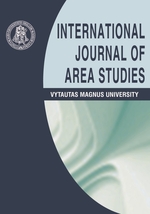Transformative adult learning in new social movement – a case study from South Africa
Transformative adult learning in new social movement – a case study from South Africa
Author(s): Marta ČubajevaitėSubject(s): Regional Geography, Political Philosophy, Politics and society, Adult Education, State/Government and Education, Present Times (2010 - today)
Published by: Vytauto Didžiojo Universitetas
Keywords: New social movements; South Africa; transformative learning; conscientization; Freire; Mezirow; individual transformation; experiential learning; popular education; adult education; CLING;
Summary/Abstract: New social movements in South Africa could play a prominent role in mobilizing the communities to reflect critically and address the repercussions of the neo-liberal agenda which manifests itself in perpetual exclusion of under-educated adults and provision of poor quality education. Few studies especially from the perspective of the activists leave a potential research area of a very interesting phenomenon of how people learn while struggling for social justice. Therefore this article based on a single multi-site case study on a social movement cohering around literacy issues in Gauteng, South Africa, aims at answering, what forms of learning and education the social movement encompassed, how did the group conscientization occur and what are the individual transformations. Semi-structured interviews and a focus group discussion were held with 13 learners activists and 2 adult educators. By applying Mezirow’s individual transformation and Freemen group conscientization models the analysis of primary and secondary data, revealed that the engagement in the social movement challenged and changed learners activists’ understanding of educational status within their respective communities. This in turn led to transformative action addressing the problems identify ed. On the individual level, some learners-activists became more tolerant and willing to cooperate with those of different political ideologies, able to tap into community resources. Finally, the potential of social movements as adult learning environments are outlined.
Journal: Regioninės studijos
- Issue Year: 10/2015
- Issue No: 2
- Page Range: 139-171
- Page Count: 33
- Language: English

